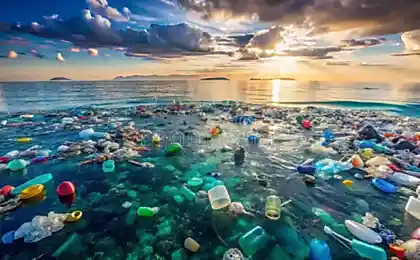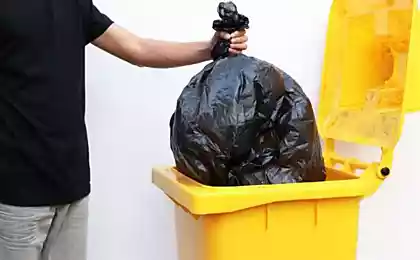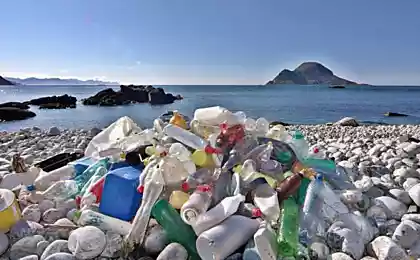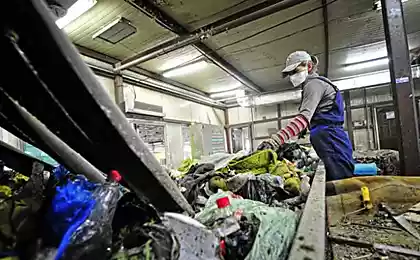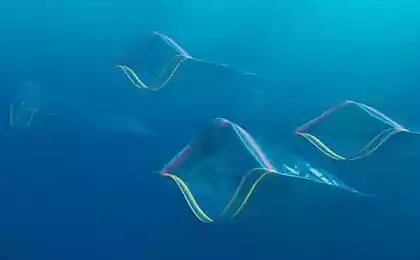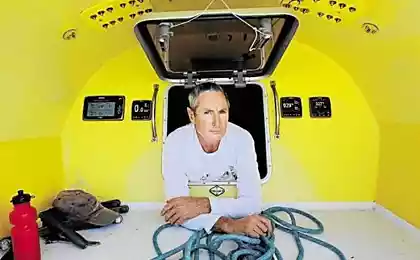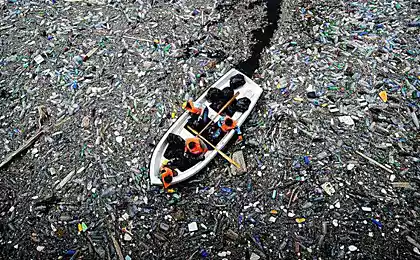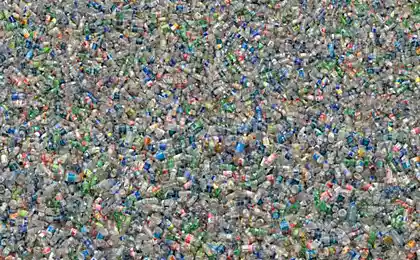445
There is no area in the World ocean, free from debris
Garbage is now even in the most remote areas of the oceans, say scientists from Portugal who are trying to establish how much waste of human activity lies at the bottom of the seas of Europe.
The researchers studied data of 588 years of video clips recorded a variety of unmanned underwater vehicles for geological mapping and other marine research, and found that plastic waste such as plastic bags, are the most common type of debris on the seabed. Often there are also batteries, aircraft parts, and metal containers. But the biggest "surprise" of a new study are the prevalence of debris.
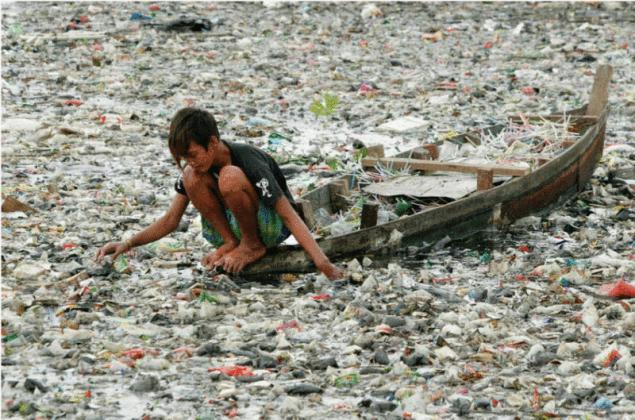
Scientists studied 32 regions, many of which are located in the deepest and most remote corners of Europe, including the fracture Charlie-Gibbs between the Azores and Iceland, the deepest in the Atlantic ocean. And at the bottom to a depth of almost three miles (4.8 kilometres) was discovered in the debris.
According to scientists, the highest levels of pollution in different submarine canyons, while on the seamounts and near the coasts were collected less debris, mostly fragments of fishing gear.
Researchers are concerned that short-term use items such as plastic bags, are the biggest polluter of our seas and oceans. If the problem is not solved soon, it could cause enormous damage not only the environment but also to human health. Indeed, many previous studies have clearly shown a negative impact on marine ecosystems tiny plastic particles, known as micro plastic,– their victims are like fish and marine animals and sea birds. And man, being the top of the food chain, exposing their health to serious danger eating poisoned plastic seafood.
Summing up the results of their research, the scientists say that only the introduction of serious measures to restrict the use of plastic can influence marine ecosystems. The refusal of plastic products should be treated as a civil liability of each person for the future of our planet.
Source: www.ozemle.net
The researchers studied data of 588 years of video clips recorded a variety of unmanned underwater vehicles for geological mapping and other marine research, and found that plastic waste such as plastic bags, are the most common type of debris on the seabed. Often there are also batteries, aircraft parts, and metal containers. But the biggest "surprise" of a new study are the prevalence of debris.

Scientists studied 32 regions, many of which are located in the deepest and most remote corners of Europe, including the fracture Charlie-Gibbs between the Azores and Iceland, the deepest in the Atlantic ocean. And at the bottom to a depth of almost three miles (4.8 kilometres) was discovered in the debris.
According to scientists, the highest levels of pollution in different submarine canyons, while on the seamounts and near the coasts were collected less debris, mostly fragments of fishing gear.
Researchers are concerned that short-term use items such as plastic bags, are the biggest polluter of our seas and oceans. If the problem is not solved soon, it could cause enormous damage not only the environment but also to human health. Indeed, many previous studies have clearly shown a negative impact on marine ecosystems tiny plastic particles, known as micro plastic,– their victims are like fish and marine animals and sea birds. And man, being the top of the food chain, exposing their health to serious danger eating poisoned plastic seafood.
Summing up the results of their research, the scientists say that only the introduction of serious measures to restrict the use of plastic can influence marine ecosystems. The refusal of plastic products should be treated as a civil liability of each person for the future of our planet.
Source: www.ozemle.net

